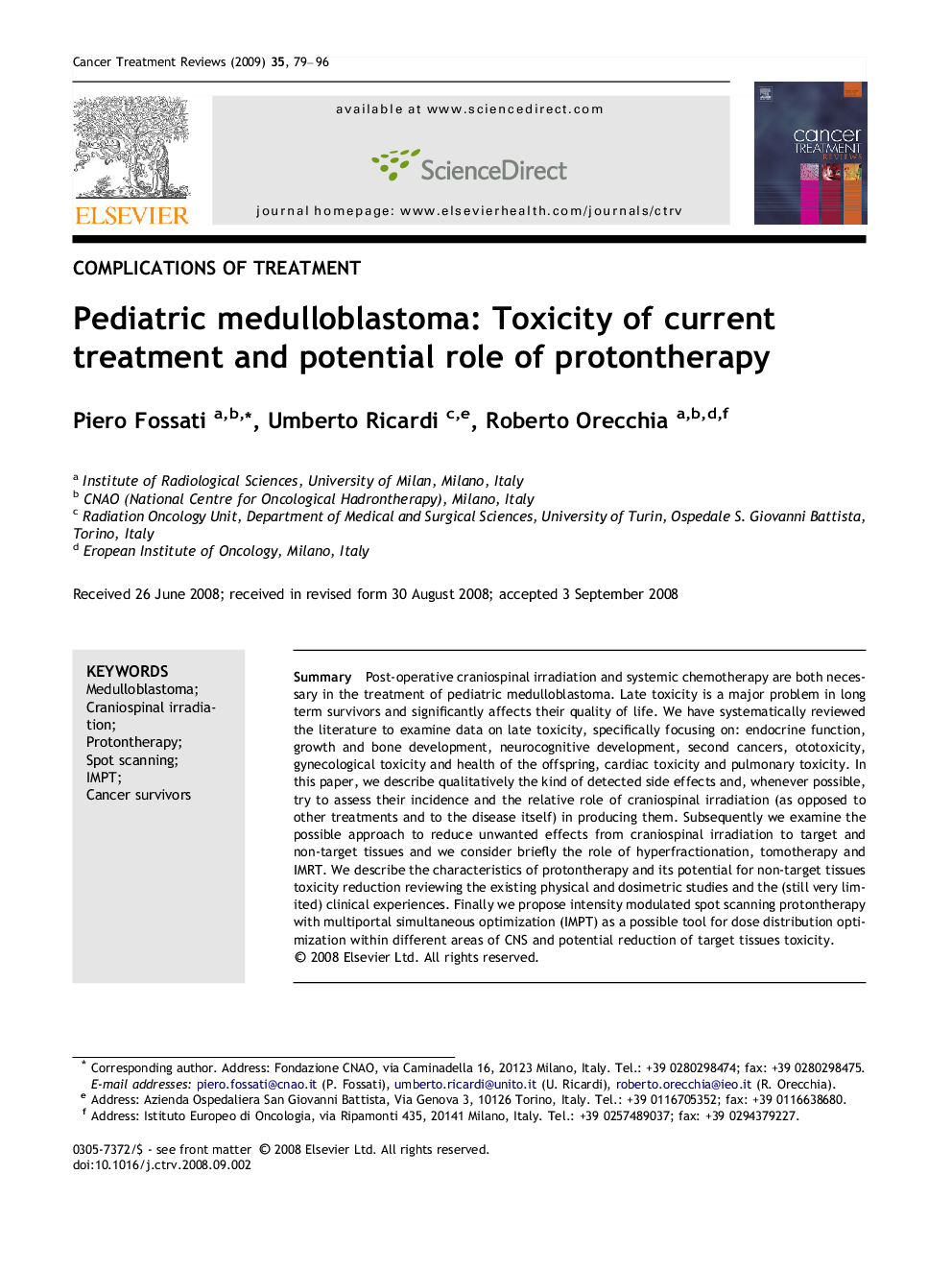| Article ID | Journal | Published Year | Pages | File Type |
|---|---|---|---|---|
| 3980503 | Cancer Treatment Reviews | 2009 | 18 Pages |
SummaryPost-operative craniospinal irradiation and systemic chemotherapy are both necessary in the treatment of pediatric medulloblastoma. Late toxicity is a major problem in long term survivors and significantly affects their quality of life. We have systematically reviewed the literature to examine data on late toxicity, specifically focusing on: endocrine function, growth and bone development, neurocognitive development, second cancers, ototoxicity, gynecological toxicity and health of the offspring, cardiac toxicity and pulmonary toxicity. In this paper, we describe qualitatively the kind of detected side effects and, whenever possible, try to assess their incidence and the relative role of craniospinal irradiation (as opposed to other treatments and to the disease itself) in producing them. Subsequently we examine the possible approach to reduce unwanted effects from craniospinal irradiation to target and non-target tissues and we consider briefly the role of hyperfractionation, tomotherapy and IMRT. We describe the characteristics of protontherapy and its potential for non-target tissues toxicity reduction reviewing the existing physical and dosimetric studies and the (still very limited) clinical experiences. Finally we propose intensity modulated spot scanning protontherapy with multiportal simultaneous optimization (IMPT) as a possible tool for dose distribution optimization within different areas of CNS and potential reduction of target tissues toxicity.
